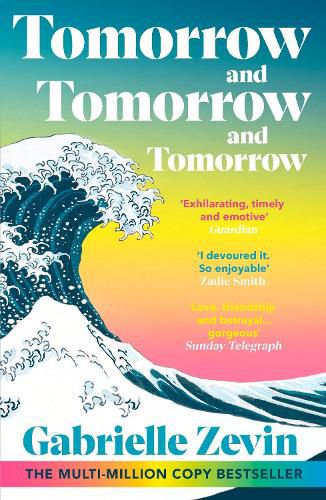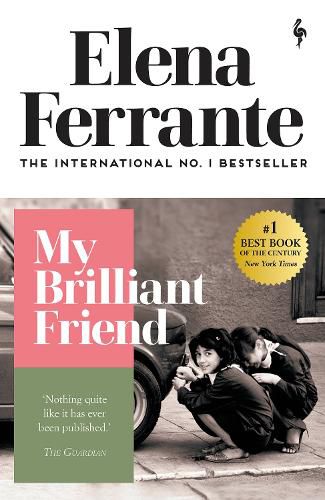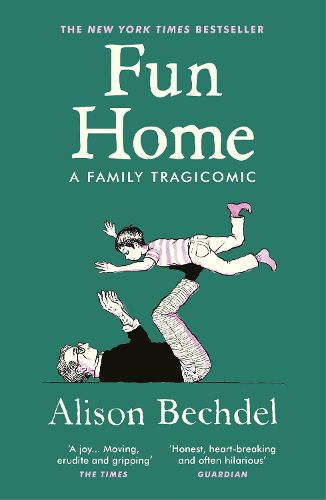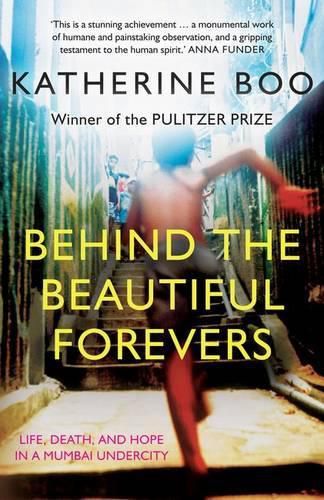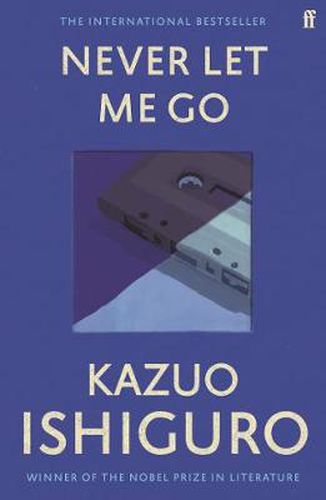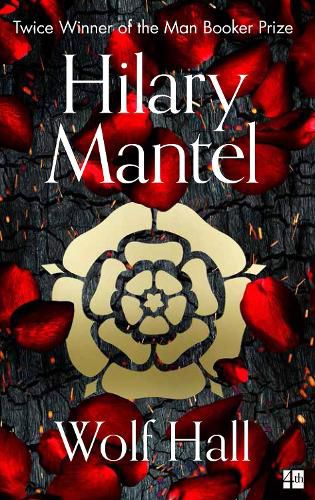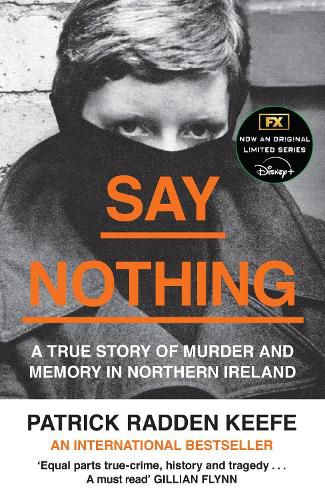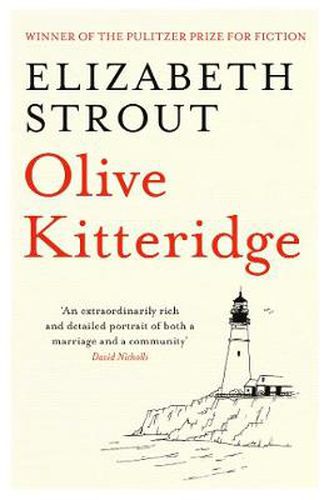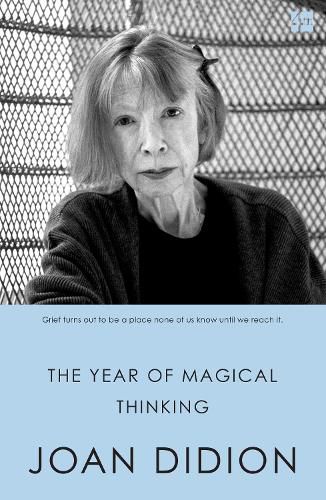To mark the first 25 years of the century, The New York Times Book Review sent a survey to hundreds of literary luminaries, asking them name the 10 best books published since Jan 1, 2000. They tallied the votes to create their list of The 100 Best Books of the 21st Century – and naturally book lovers around the world have been scouring the list to see how many they've read, and how many they have sitting untouched on a shelf . . .
If you're feeling overwhelmed by the idea of making your way through 100 books, don't worry! Our expert booksellers are here to share their favourites and help you decide what should get the top spot on your TBR.
Aurelia Orr recommends:
Tomorrow, and Tomorrow, and Tomorrow by Gabrielle Zevin
'Of all the highly accomplished and expertly written novels from this list, I would first and foremost recommend Tomorrow, and Tomorrow, and Tomorrow by Gabrielle Zevin. Spanning over 30 years, we intimately experience every moment of friendship, love, loss, and video games in the very complex, infuriatingly loveable lives of Sadie and Sam.'
Chris Gordon recommends:
My Brilliant Friend by Elena Ferrante, translated by Ann Goldstein
'Everything you need to know about the way humanity works is in this list; each title gives you a front row seat to the trials of us all. But if I had to chose one out of all of these wonderful books, it would be Ellena Ferrante's because the intensity of emotion is given the entire landscape of the novel. Reading this novel made me feel and smell and hear everything that 1950s Naples had to offer those two girls, who needed so much more than what they were given. Reading it was an act of breathlessness. What a privilege to read.'
Bernard Caleo & Tamuz Ellazam recommend:
Fun Home by Alison Bechdel
Bernard says: 'Alison Bechdel’s Fun Home is indeed one of the great books of the 21st century: an autobiographical graphic memoir steeped in the 20th century literature canon which was the lingua franca for Bechdel and her father Bruce, an English teacher and inheritor of his family's funeral home (thus the title). The book parallels the coming out stories of Alison and Bruce and etches deep the comic and tragic consequences for both. History, memoir, drawing, books, doomed love: a heady mix. Brilliant.'
Tamuz says: 'After 25 years commentating on lesbian culture in her weekly comic strip, Dykes To Watch Out For, Alison Bechdel turned her insightful style to her own past, starting with her childhood, in her closeted father’s funeral home. The result is a family biography that pulls no punches. Equal parts devastating and funny, tender and angry, Bechdel wields text as deftly as her witty and expressive illustrations. A poignant insight into the collateral damage that follows secrets, repression and shame.'
Jason Austin recommends
Behind the Beautiful Forevers by Katherine Boo
'I've read a lot of these, but one that I don't think gets enough recognition is Behind the Beautiful Forevers by Katherine Boo. An amazing piece of reportage, Boo spent three years documenting the history and people of the Annawadi slum which sprang up during the building of the Mumbai International Airport. Dealing with disease, corrupt authorities and poverty, literally in the shadow of residents dwelling in some of Mumbai's most wealthy real estate, the story of the slum and its people is totally engrossing and eye-opening.'
Bella Mackey & Athina Clarke recommend:
Never Let Me Go by Kazuo Ishiguro
Bella says: 'I first read Never Let Me Go in my year twelve English class, and even the stress of studying it for exams wasn't enough to stop me loving it. Kazuo Ishiguro's writing is picturesque and full of pathos, and I heartily recommend reading any of his books you can get your hands on, but especially Never Let Me Go. The fleeting joys and lingering heartbreaks of these characters will gently haunt you long after the final page.'
Athina says: 'I’ve read so many of these and loved them all . . . if I had to select just one it would have to be Never Let Me Go for its eviscerating impact! It will leave you gasping for air.'
Lian Hingee & Melinda Houston recommend:
Wolf Hall by Hilary Mantel
Lian says: 'Wolf Hall is one of the most exquisitely-rendered depictions of Tudor history that I've ever encountered. It's a tender, often unexpectedly witty, and above-all gorgeously-written book about one of the most brutal and fascinating periods in Western history. Mantel's sympathetic portrait of Cromwell is perhaps a little too good to be truly believable, but her vivid depiction of 16th century life is so utterly transportive that I always found myself emerging from the pages, desperate to dive back in.'
Melinda says: 'There are so many great books on this list but the one to truly lose yourself in is Wolf Hall. You get to the end of 800 pages and still want more. Luckily, Hilary Mantel gave us more – the whole trilogy is exceptional!'
Joanna Di Mattia recommends:
Say Nothing by Patrick Radden Keefe
'My pick of the NYT 100 Best Books of the 21st Century list is Say Nothing by Patrick Radden Keefe, an exceptional work of investigative storytelling about Northern Ireland and the Troubles that begins with the 1972 abduction and disappearance of a Belfast widow and mother of ten, and expands out to the wider conflict from there. It is tense and harrowing, beautifully structured, and is the absolute best thing a work of history writing can be – rage inducing.'
Rosalind McClintock recommends:
Olive Kitteridge by Elizabeth Strout
'I have only read nineteen books from the NYT list, so I am not sure I can say what is the best of the best, and also my memory of books always depends on what was happening in my life when I read them. However, Olive Kitteridge is one that has stuck with me the most. It seems unassuming, the prose is simple and the lives somewhat mundane, but the whole experience is far from that.'
Lucie Dess recommends:
The Year of Magical Thinking by Joan Didion
'I'm not embarrassed to say I've only read two books from the list, as I spend the majority of my time reading Young Adult books. But I was delighted to see Joan Didion's The Year of Magical Thinking made the list. It is such a beautiful portrait of grief after losing a loved one. Seeing it on the list makes me want to reread it immediately. Although maybe first I should take a look at some of the others that made it on there . . . '


